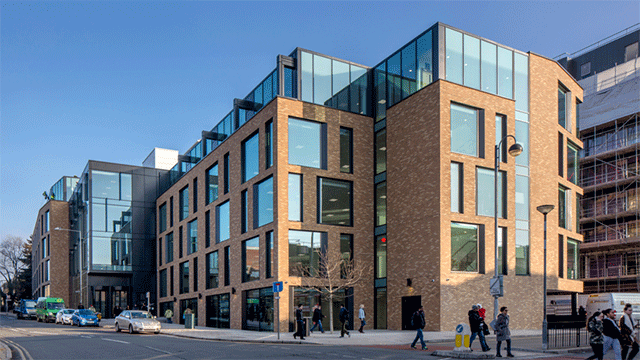The beer business is in a barrel-load of trouble. It’s not that beer is unpopular. Thanks to the growth of micro-breweries and the appeal of craft beers, there are now more than 1,100 brewers in the UK. Between them they provide nearly 90% of the beer drunk in the UK and contribute £22bn to the UK economy.
The problem is that, thanks to sky-high UK booze taxes, each pint sold delivers just 2p to the brewers, and £1.06 to the government (according to the British Beer and Pub Association). As a result, a low-margin business is struggling to make ends meet.
Worse, most beer is sold in pubs and they are closing in large numbers. The Campaign for Real Ale says pubs are calling last orders for the last time at the rate of about 28 a week. That’s about 1,400 a year. Those that stay open are often selling less beer and more wines, spirits and soft-drinks. No wonder the big regional brewers are joining the corporates by expanding into hotels and other leisure ventures. Marstons is the latest to move from beer into beds.
So when the brewers consider their property requirements, they tend to think long and hard. Investment on the scale required for new breweries or distribution centres is not something they will do lightly.
The appropriately named James Swallow keeps his eye on the brewing business on behalf of CBRE. Swallow, director in the industrial team, says: “It’s a low-margin business, and for the breweries property is a huge investment because they need large floorplates, and because of the fit-out. There’s a temptation to make the best of what they’ve got rather than invest in new space.”
Danish brewer Carlsberg proves the point nicely. Five years of planning seemed about to result in a 600,000 sq ft prelet at Roxhill’s Brackmills scheme, Northampton. The 28-acre site was ideal, it seemed, because it was close to the existing Northampton brewery. But suddenly, one Monday morning earlier this summer, the plan was called off.
Carlsberg’s Copenhagen HQ said at the time that the decision was “based on a thorough analysis of the economic and business case”. The company said it would “continue to explore options for the future national supply chain solution” but couldn’t say when or how.
Local sources were baffled. “A bolt from the blue,” said one property source familiar with the situation. Gerald Eve, who had been advising Carlsberg, declined to comment.
Dutch-owned Heineken – the other big mover of the past 12 months – has persevered with its plans. Last summer 193-acre Goodman’s Derby Commercial Park was chosen for a 630,000 sq ft Kuehne & Nagel warehouse expected to serve client Heineken.
For smaller regional breweries the difficulties faced by the big international names are – potentially – multiplied many times.
Daniel Thwaites plc, the Lancashire brewer, demonstrates how patching and extending old premises – always a brewer’s preference – isn’t always possible. Eventually the day comes when new premises are needed. But brewers aren’t necessarily footloose – and aren’t big favourites with the property business.
After a long search Thwaites found a 10-acre site at Mellor Brook near Blackburn, bought it and is now planning to build it themselves. A planning application is imminent for brewery, head office and visitor centre. The main warehouse will remain at Shadsworth.
Chief executive Richard Bailey says: “We have been looking for a new site for over two years. We had thought it would be easy to find a new site, but this was not the case. We had a clear vision about the type of site that we wanted, something that was not on an industrial estate, stood in a good location, was accessible and had its own character. This proved more difficult than we thought.
“It has always been important to us that we stay close to Blackburn, which has been our home for over 200 years, and we have been aware that we would like to safeguard jobs in the area, so I am pleased that we have been able to find a site only a few miles away.”
The question of what to do with the old site is still unresolved. The brewer had hoped to lure Sainsbury’s to the site, but Blackburn council wouldn’t play ball. Bailey says: “We were not able to get the support of Blackburn council to bring Sainsbury’s into the town and so those discussions have now ended. We are still brewing in Blackburn and our offices are based there until we move.
“Our current brewery is old, oversized for our current needs and reaching a point of obsolescence. It is inefficient for the demands of today’s market and is reaching the end of its economic life.”
The result was the tricky decision to restructure the brewing operations to make it possible to continue.
Today Thwaites is at the point of appointing architects, prior to making a full planning application, which it expects to be able to do by next spring.
Breweries are big, complicated, high-volume, low-margin businesses. Their property requirements are not always easy to satisfy. But like a good pint of bitter, their property has an appeal ?all its own.
Investors
When brewers do, eventually, decide to take new floorspace, nobody cheers louder than property investors.
With name-check tenants, long corporate histories, large floorplates and the certainty that comes from knowing the British are unlikely to become teetotal any time soon, what’s not to like about brewery investments?
The downside (or perhaps the upside for some investors) is that not a lot of large, well-let brewery property comes on to the market.
InBev is one of the biggest brewing names, with brands including Bass, Becks, Boddingtons and Budweiser.
InBev’s 116,000 sq ft unit at Dunstable came on to the market last year with offers above £6.7m invited. The yield at that price would have been a juicy 9.77%. The lease on the former Whitbread unit expires in June 2017. Sales agents were Franck-Steier Price.
Make it last
Brewers don’t appear often in the property market because they prefer to expand and adapt their existing premises.
Yorkshire-based Caddick Construction has been working with the big brewers for years. It has carried out extensions and alterations for Black Sheep, Carlsberg, Heineken and Molson Coors.
For Carlsberg it built a 75,000 sq ft extension to the Northampton plant, which meant the company was able to double its production of Export, Special Brew and San Miguel beers to 10m bottles a year.
Caddick’s Manchester team won what became a £10m project from Heineken to construct a fermentation vessel and yeast vessel building, interlinking bridge and associated external works for the business. In order to allow for the installation of a new bottling line, an existing kegging line was refurbished by the team.
Andrew Murray, managing director at Caddick Construction, suggests that one of brewers’ main concerns with property decisions is not to disrupt the flow of beer.
“All of the work has been carried out to ensure that the brewery can continue production,” he explains.











